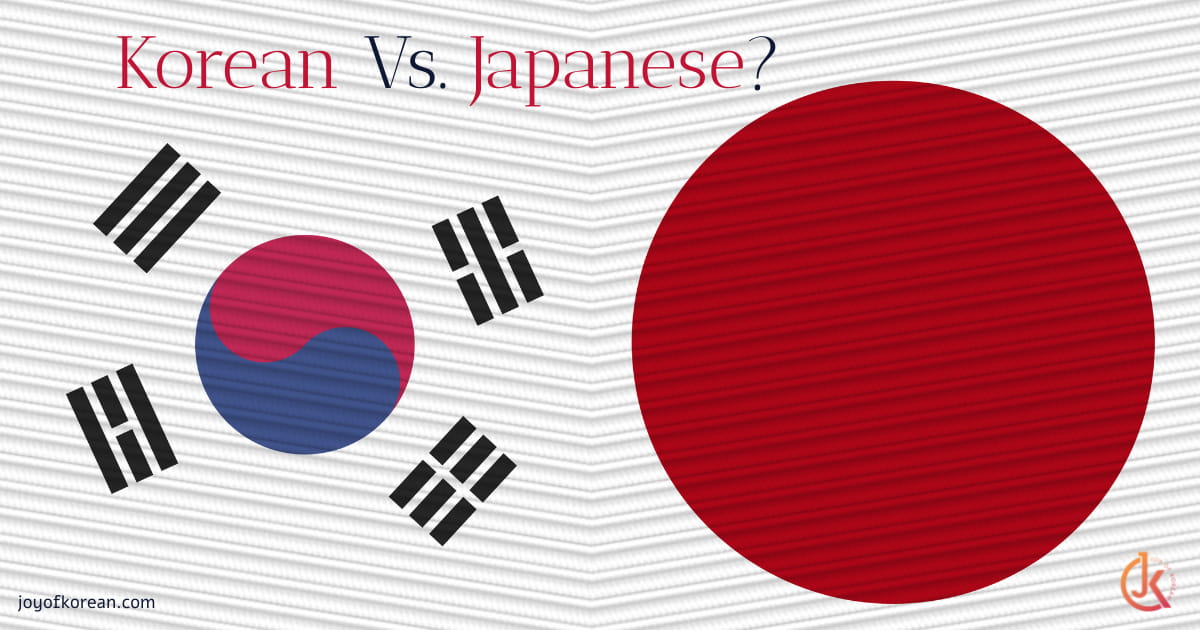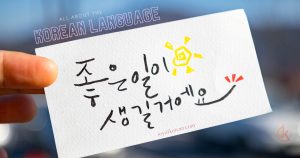Japanese and Korean are two popular Asian languages to study, and for good reasons. Both are rich in culture and history, offer ample personal and career opportunities, and allow us to connect with people worldwide.
In short, learning Japanese or Korean can be an exciting and rewarding initiative.
But which East Asian languages should you learn? It is a tough choice, considering the importance of both tongues on the global stage.
The two are some of the most sought-after languages. But it depends on many factors which one to pick. Your goals, situation, and interests matter most.
This article will compare Japanese and Korean with unique benefits and shortcomings. These points help you make the most appropriate choice for you.
So, let’s get the ball rolling!
TABLE OF CONTENTS
- Why learn Korean or Japanese in the first place?
- Which one to learn between Japanese and Korean?
- Final Verdict — Japanese Vs. Korean
Why learn Korean or Japanese in the first place?
South Korea and Japan are incredibly aesthetic and popular countries to look at, understand, and dive deep into.
Travel, food, culture, people, festivals, entertainment, lifestyle, and tradition are unique and awe-inspiring in both nations. It is an unforgettable experience you should have at least once.
Hailing from Far East Asia, both are developed economies. They are famed worldwide for their resilience and growth despite their troubled histories.
Rich and legendary histories have shaped their mindset. They achieved remarkable milestones internationally by adopting modern technology quickly.
As a result, the official languages of Japan and Korea are fantastic and worth studying.
Japanese and Korean are some of the top tongues globally. They offer outstanding personal growth, cultural exploration, and professional expansion possibilities.

How Korean and Japanese are similar and different?
While on the face, Korean and Japanese feel similar in culture and language, they have vast differences. There are contrasts in the sounds, writing, and customs.
Although both are impressive, their scripts are different and can easily be distinguished.
Hangul is a Korean writing system. On the other hand, Kanji is a Japanese alphabet taken from the logographic characters from the Chinese script. It diametrically opposed both sets of writing to one another.
Unlike Korean, which uses only Hangul, there are three characters in Japanese — Hiragana, Katakana, and Kanji.
There are very few cognates or loanwords in the vocabularies of the two languages. But they share many things in different Chinese languages, making them sound similar or even the same in specific instances. Thus, it would be incorrect to say there are no similarities.
Japanese and Korean grammar is primarily alike.
Both use SOV sentence structure (Subject-Object-Verb). In regular speech, they both contain particles. Their way of counting and using different terms for each count are also common.
Particles and markers are vital in both languages’ grammar. They serve as grammatical functions that connect words and help form a sentence’s meaning.
Even though they have separate writing systems, Japanese and Korean have a lot of linguistic commonalities. Because of the impact of China on the history of language, Chinese characters have been adopted, and famous words are pronounced identically.
Both languages are identical in sentence structure and language syntax. The grammar rules are almost the same in both. Still, for the sake of comparison, Korean grammar rules are more straightforward than the ones in Japanese.
Both languages also emphasize the formal and informal ways of talking. The usage of honorifics is essential.
When we talk to a stranger or someone older, we must use formal (Jondaemal (존댓말) in Korean and Teineigo (丁寧語) and Keigo (敬語) in Japanese).
While an informal tone that can be used with friends or juniors, we use Banmal (반말) in Korean and Kudaketa nihongo (くだけた にほんご) in Japanese.
Scripts, Reading, and Writing
Korean and Japanese languages differ significantly in reading, writing, and script. The Japanese alphabet comprises 92 letters. On the contrary, Korean only contains around 40.
To convey the language on paper, Japanese uses three separate writing systems that are named Hiragana, Katakana, and Kanji. Hiragana and Katakana are syllabaries with around 46 characters apiece.
While the original script had more characters, most needed to be updated and no longer in everyday use. Kanji is a collection of around 2000 characters from China, each with meaning and pronunciation.
Korean lacks Chinese characters, wholly eliminated from the standard language. The original script, Hanja, was entirely based on Chinese characters.
But the ruler of Joseon introduced a new script in the early 15th century (as South Korea was called then). They did this to make the language easier for the ordinary person.
Hangeul contains 40 letters (originally 24, but with an additional 5 consonants and 11 vowels, excluding the double consonants, which make up around 7 characters).
Because the strokes are essential and formed based on the vocal organ, Hangeul is easier to read and write than the Japanese language.
This makes learning Korean writing and reading considerably easier. The Korean language now has only one writing system, Hangul, a broadly logical alphabet.
To learn Japanese, you must learn Kanji to read it. That’s a notable achievement. We can find Kanji in books, signage, restaurant menus, and computers. You do not have reasons to learn Chinese characters in Korean.
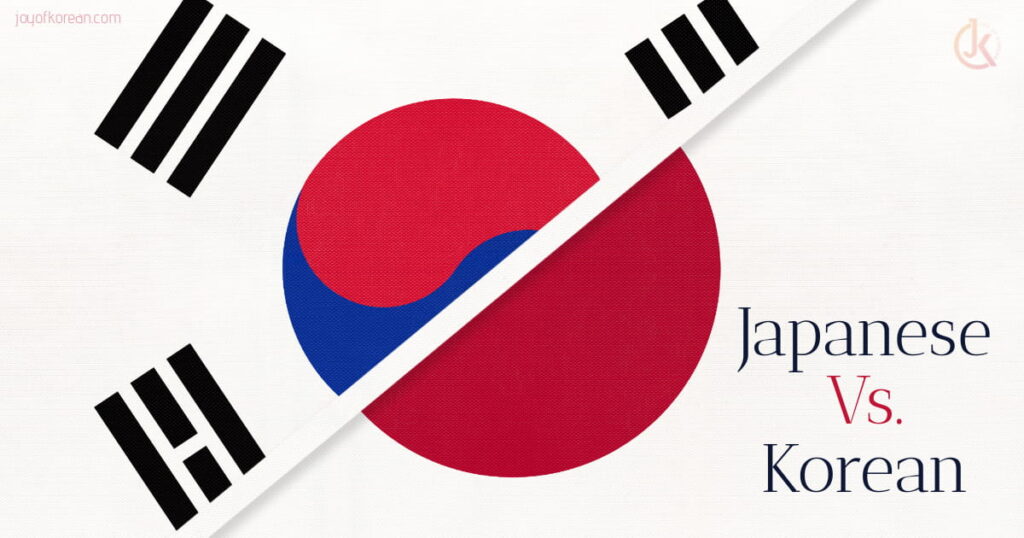
Speaking and pronunciation
Korean does not have a tonal system, unlike other East Asian languages. This implies that the word’s meaning remains unchanged regardless of your accent.
This is not the case with Japanese, as the same syllable can change with voice inflections and tonal changes. So, speaking Korean is easier than Japanese. But this is not the only factor.
In Korean, there are more sounds. Except for the /z/ consonant, the Korean sounds are a superset of the sounds in Japanese. This signifies when you learn Korean, you will pick up on most Japanese sounds and some new ones.
Still, distinguishing between such sounds can take time and effort. Korean pronunciations can sound very similar to the ear if you do not learn to differentiate between the subtle changes of certain characters.
For example, the Korean alphabet ‘ㄱ’ (pronounced like ‘g’ in ‘again’) and ‘ㄲ’ (pronounced like ‘g’ in ‘gang’) have a very slight disparity in articulation. But it makes an enormous difference to the word’s meaning.
In terms of pronunciation, speaking Japanese is more effortless than Korean. Only five distinct vowels and a handful of very simple consonants are required to pronounce every word in Japanese.
Japanese is also wholly phonetic. So, you can write any word or sentence if you know at least one of the Kana syllabaries.
There is a far greater range of vowels and consonants in Korean. This includes compound vowels, which combine vowels to create even more perplexing vowels.
In Korean, how you say the end of one syllable depends on the starting sound of the following syllable.
Japanese is more uncomplicated to pronounce because of the limited number of sounds that form a part of the language. This could be a motivation to study Japanese.
Time to be fluent in Japanese or Korean
The question of how long it takes to learn Japanese or Korean doesn’t have a definite answer.
Learning basic Japanese can take at least 6 months for most people who begin without prior knowledge. Speaking, writing, and reading will all be part of this.
This elementary level will help you pass N5 or N4 of the Japanese Language Proficiency Test.
There are exceptions in every scenario.
The pace will be determined mainly by your learning speed and capacity, which varies from person to person. The simplest and quickest approach to becoming fluent in Japanese is to practice it frequently.
Because Japanese is such a popular language. Finding books, podcasts for Japanese learners, study materials, and top Japanese learning apps are simple.
On YouTube, there are many Japanese songs with English subtitles. You can also learn Japanese with anime and J-pop.
People in Japan are typically kind; if you ask for help with pronunciation or grammar, they will gladly assist you.
Korean has less grammar, but it takes a considerable time. Korean fluency takes 3 years or more. This includes reading, writing, and speaking if you put in significant effort.
Most people learning Korean begin by concentrating on speaking rather than writing since speaking is easier.
People in Japanese frequently begin writing first since Japanese characters are simple to write on a whiteboard or piece of paper.
Koreans are also very interested in the English language and thus will be easier to talk to while learning the language.
As per FSI studies of the US government, Korean and Japanese fall under Category IV, i.e., Super-hard languages. It would take 2200 class hours to gain a meaningful level.
Adding a suggested 1:1 ratio of class and self-study would mean 4400 hours to achieve an advanced level, like JLPT N1 or TOPIK level VI.
Which one to learn between Japanese and Korean?
Which language to learn of these two becomes hard to answer. Both have pros and cons and require a good time investment and long-term dedication.
If you are on the fence, you would want to know the advantages and disadvantages of learning these two tongues. Also, the edge you get in according to your requirements and pursuits.
At this juncture, ask yourself what factors motivate you to learn either.
It could be your interests, passion, career goals, and resources. Also, what do you want to achieve at the end of your learning endeavor? Which culture, society, or language are you more drawn to?
Is the inspiration for learning to widen the scope with new job prospects? Do you aim to pursue a hobby or for fun? Have you assessed the differences between the two languages?
Worry not if you need help figuring out whether to learn Japanese or Korean. At the end of this read, you will have all the inputs to choose which one to remember — Korean or Japanese.
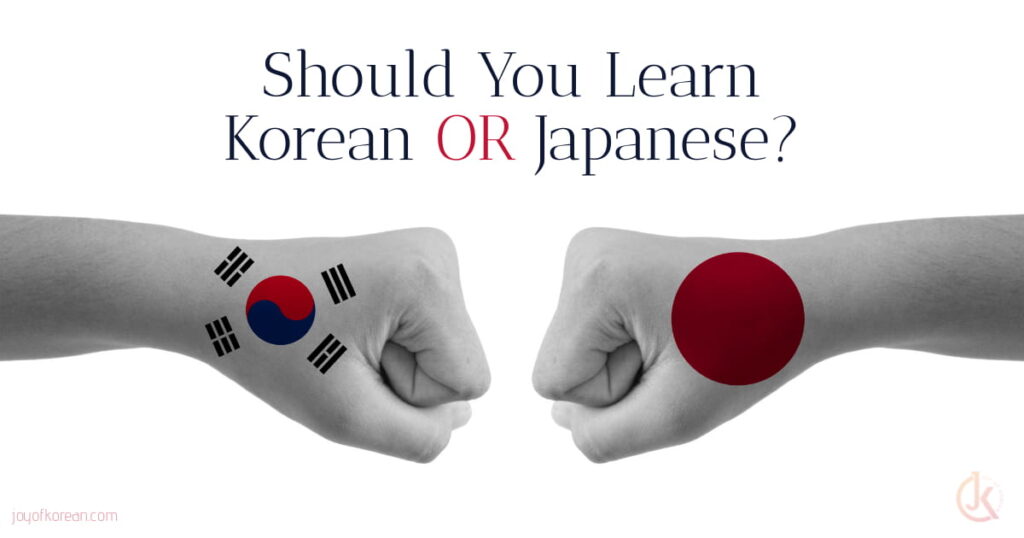
1. Similarities based on your mother tongue
It motivates many learners to learn a new language that is easy to understand.
If your mother tongue is Korean or Japanese. Then, studying these languages is simpler because of their linguistic resemblances.
Because of centuries of using Chinese characters and geographical proximity, Japanese and Korean have been influenced by the Chinese language.
That is why some overlap exists between the words, pronunciation, grammar, phrases, and other fundamental parts.
While these languages have some noticeable similarities, all three are mutually intelligible. The resemblances are limited and only help a little.
In short, all 3 are distinct tongues. So, your Mandarin knowledge doesn’t support much since Korean and Japanese have evolved significantly over the last few centuries.
But if you speak Chinese or Japanese, it is beneficial to learn Korean due to various similarities. But this logic isn’t the best criterion for picking either of them.
Also, Japanese and Korean are both believed to be isolated languages. It means we do not relate them to any other known language family.
2. Number of speakers & where is it spoken?
Over 125 million people worldwide speak Japanese, of which nearly 124 million are native speakers. It is the eighth most spoken mother tongue. This makes Japanese helpful to study.
Most Japanese speakers live in Japan, where it is the official language. There are also sizeable speakers in the USA, Brazil, China, South Korea, etc.
Korean is primarily spoken in North Korea and South Korea. With over 82 million speakers, it is the official language of two countries.
Because of the widespread Korean wave and K-culture, millions of teenagers are learning Korean for bts, kpop, etc., across the globe.
From the number perspective, Japanese has much more speakers than Korean. Since North Korea is not connected outside the world, one can communicate only with around 50 million South Koreans.
But because of a growing number of Korean learners, the difference isn’t the primary factor in choosing J over K. Also, both languages have their own unique importance and cultural significance.
3. Global demand, importance, and recognition
Japan has a more developed economy and a 125 million Japanese speakers’ population. Japanese is the world’s thirteen most-spoken language, and Korean is the twenty-third.
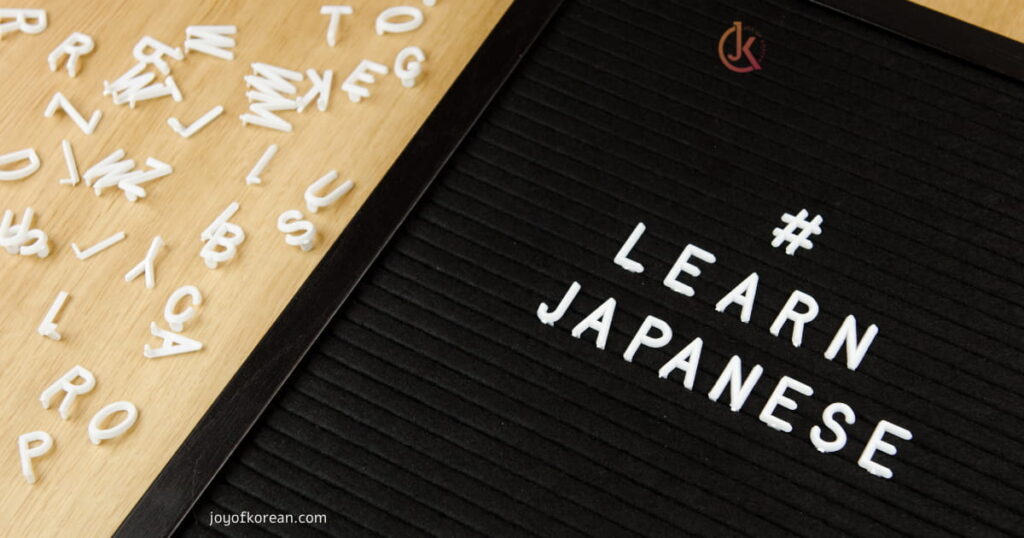
South Korea has a significantly smaller population but a fast-growing economy with rapid international acclaim. This is especially true regarding entertainment and cosmetic items that have gained worldwide popularity.
South Korea is a relative newcomer to globalization and the worldwide image game. Everyone recognizes Japanese culture and history as distinct and dignified worldwide.
Western middle-aged people, particularly millennials, are well-versed in J-pop culture. Even many learn Japanese for songs. It has grown up with cultural icons such as Pokemon, Anime and Manga, Studio Ghibli films, and so on.
Samurai, Ninja, Geisha, Karate, and Godzilla are all terms people of all generations are familiar with.
In contrast, South Korea is more of a recent sensation but a massive one.
The Hallyu wave (the wave of Korea and its culture) is spreading rapidly, with everything from K-pop and K-drams to K-food and K-movies to K-beauty and K-fashion being the trend.
Squid Game, Parasite, Gangnam Style, and BTS are known by almost everyone worldwide. You will learn Korean through K-pop.
Also, sweeping ratings, awards, and musical charts in all countries are a true testament to the level of global presence that South Korea is reaching.
The recognition South Korea is getting has grown sky-rocketed in the past few years, and more and more of its culture is being popularized.
In fact, South Korean musical groups releasing Japanese albums make up for a small part of Japan’s recognition among the new generation.
While this is very subjective, your preference makes all the difference.
4. Job and career opportunities
Learning Japanese or Korean can open up various job options, depending on your interest and expertise. There are many potential career paths where either of the language skills can benefit.
For instance, teaching, translation, tour guide, interpretation, customer support, information technology, sales executive, and writing. You can also work in the embassies, hospitality industry, international business, export houses, etc.
These are just a few examples. The exact job opportunities may vary depending on your skills and qualifications. But overall, the career scope for Korean and Japanese is immense, regardless of your field.
Language skills paired with relevant expertise can improve career prospects in various areas.
Both Korean and Japanese offer plenty of career and business choices. But if we compare the two nations, Japan has an edge over South Korea because of its more extensive economy.
Japan is the world’s third-largest and second-largest modernized economy after the United States. The importance is simply unmatched by South Korea.
Although Japan’s economy has been stagnant for several years and South Korea’s has been reasonably prosperous. Still, Japan’s technology and service industry’s sheer scale and competence remain strong.
Japan is yet undefeated by being home to a broader range of businesses. For instance, Yamaha, Nippon, Daiichi Sankyo, Sony, SoftBank, Mitsubishi, Suzuki, Toshiba, Kawasaki, Canon, Nissan, Hitachi, Daikin, Toyota, Mazda, Nintendo, Honda, Fujifilm, Pentel, Panasonic, and dozens of big names.
Most Japanese multinationals invest globally because of potential in the auto and electronics sectors. Also, many Western companies have Japan as one of their most important customer markets.
Most top-level fashion businesses, including Disney, Apple, and Lush Cosmetics, have significant investments in marketing and selling to the Japanese market. As a result, Japanese is good for jobs.
It’s not that South Korea’s economy isn’t strong. The booming economy provides many career options for learners from far and wide.
Giant corporations such as Samsung, LG, KIA, POSCO, FILA, and Hyundai are market superpowers from South Korea and are globally recognized.

It’s just that the Japanese economy is vaster. It implies more options and money for more people.
Suppose you have a particular field in mind. For example, in animation and gaming, Japanese is a better choice.
In contrast, Korean is more helpful in the broader entertainment sector because of the ever-growing popularity of Kpop, K-drama, and K-films. Options can range from artist management and promotion to working as a music producer or songwriter.
In some fields, both Korean and Japanese can be valuable depending on your purpose. E.g., cuisine, tourism, cuisine, teaching, visiting as a tourist, or studying as a hobby.
5. Ease of learning between Japanese and Korean
The ease of learning Japanese or Korean can vary depending on your native language and previous language learning experiences.
Both Japanese and Korean have challenges, but let’s look at some vital aspects of each language to understand their difficulties.
There is hardly any disparity between these two languages in terms of difficulty of speaking.
As per FSI, both Korean and Japanese are alike as far as difficulty is concerned. It will take equal time if you intend to take the highest level of Japanese NAT or Test of Proficiency in Korean.
Japanese uses 3 writing systems — Kanji (Chinese characters), Hiragana, and Katakana. Kanji can be tricky because of the thousands of characters and multiple readings for each character.
In contrast, the Korean language has a unique, simple writing system called Hangul. It has 24 characters, making it one of the most straightforward writing systems to learn.
Japanese and Korean grammar differs from English and other Indo-European languages.
The word order is relatively flexible, and the particles show sentence structure. Both use honorifics and politeness levels that affect sentence structure and word choice and can be initially tough to grasp.
Japanese pronunciation is more manageable for English speakers compared to Korean. The sound system is simple, and there are fewer consonant clusters. Korean is more challenging and has a more significant number of consonant clusters and unique vowel sounds.
Regarding vocabulary, both languages may introduce new concepts and words unfamiliar to English speakers. But Korean shares some nearness with other languages in the region, like Mandarin, that might aid in learning related terms.
Overall, opinions about the ease of learning Japanese or Korean can differ from person to person. Some learners may find the grammatical structure of Korean more intuitive, while others may appreciate the simplicity of Korean writing.
Ultimately, your motivation, dedication, and exposure to the language through immersion and practice will significantly influence your learning experience for either language.
Final Verdict — Japanese Vs. Korean
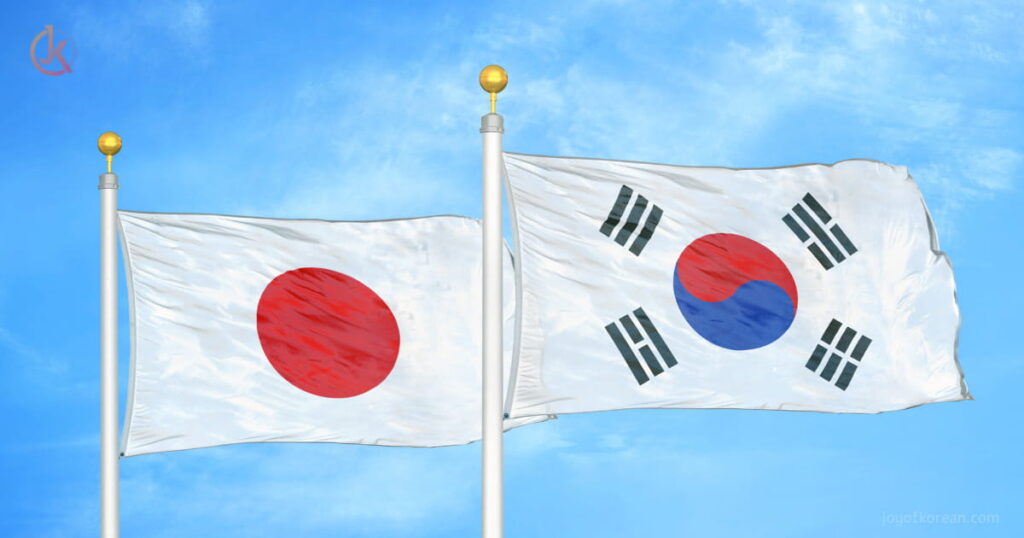
Japanese and Korean are both great languages to learn. Both have their own points of simplicity and complexity. While pronunciations and ease of listening are easier in Japanese, writing and grammar become easier in Korean.
Both have a booming job market and are established (with Japan) and rapidly growing (with South Korea) global presence.
It is, in fact, easy to learn either after the other because of their similarities. However, the popular opinion is to learn Korean first as it makes the transition to Japanese easier.
Now, the choice comes down to picking which one you feel more inclined to and which would suit your needs better. With all this information, that shouldn’t be very difficult! So go ahead and get started on your language journey.
Finally, there is no right or wrong answer when selecting whether to learn Japanese or Korean. It ultimately comes down to your interests, career aspirations, and future goals.
Consider factors such as your affinity towards either culture or your desired industry connections. Also, the availability of resources and the commitment level required to become proficient in each language.
Regardless of what language you choose to study — be it Japanese or Korean — both offer immense value in terms of personal growth and cultural appreciation.
So why not embark on this linguistic journey that will undoubtedly enrich your life? Share your thoughts in the comments!
